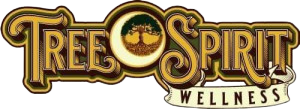Delta-9-tetrahydrocannabinol (Delta-9 THC) is the primary psychoactive compound found in the cannabis plant. It is the molecule most responsible for the characteristic "high" or euphoric sensation associated with marijuana use.
In simple terms, when people talk about THC—whether in a joint, a gummy, or a concentrate—they are almost always referring to Delta-9 THC.
Key Facts at a Glance 📊
| Feature | Description |
| Psychoactivity | Yes - It is the main psychoactive compound in cannabis. |
| Source | Naturally occurs in both marijuana (high levels) and hemp (low levels). |
| Legality | Federally illegal as a Schedule I substance, but legal for medical/adult-use in many states. Hemp-derived Delta-9 THC (<0.3% by dry weight) is federally legal. |
| Consumption | Smoking, vaping, edibles, tinctures, capsules, and topicals. |
| Effects | Euphoria, relaxation, altered perception, appetite stimulation, potential anxiety/paranoia. |
| Medical Benefits | Pain relief, nausea reduction, appetite stimulation, sleep aid. |
How It Works: The Science Simplified
Delta-9 THC produces its effects by binding to cannabinoid receptors (primarily the CB1 receptors) in your brain and central nervous system. This interaction alters the release of neurotransmitters and temporarily changes functions like:
- Mood
- Memory
- Perception of time
- Appetite
- Pain sensation
Delta-9 THC vs. Other Cannabinoids
It's easy to get confused by the different "THCs" on the market. Here’s how Delta-9 compares:
- vs. THCA: THCA is the raw, acidic, non-psychoactive precursor found in live cannabis plants. When heated (a process called decarboxylation), THCA converts into psychoactive Delta-9 THC.
- vs. Delta-8 THC: Delta-8 is a cannabinoid isomer with a similar molecular structure to Delta-9, but it is significantly less potent. It is often synthetically derived from hemp-based CBD.
- vs. HHC: HHC is a hydrogenated form of THC. It is more stable and has a longer shelf life but is also less potent than Delta-9.
- vs. THCP: THCP is a newly discovered cannabinoid that binds to CB1 receptors more effectively than Delta-9, making it potentially much stronger.
The Legal Loophole: Hemp-Derived Delta-9 THC
The 2018 Farm Bill legalized hemp, defined as Cannabis sativa L. containing less than 0.3% Delta-9 THC by dry weight.
This created a market for hemp-derived Delta-9 products. Companies create edibles (like gummies) where the total weight of the product contains less than 0.3% THC, but the absolute amount of THC per serving can still be significant (e.g., a 5mg gummy in a 5-gram package is compliant).
⚠️ Important: While federally legal, many states have explicitly banned all forms of THC, including hemp-derived Delta-9. Always check your local laws.
FAQ
Q: Is Delta-9 THC the same as "regular" THC?
A: Yes. When people say "THC," they are almost always referring to Delta-9 THC.
Q: Will Delta-9 THC make me fail a drug test?
A: Yes. Standard drug tests screen for THC metabolites, and Delta-9 THC will cause a positive result.
Q: What's a standard dose for a beginner?
A: For edibles, start with 2.5mg to 5mg and wait at least 2 hours before considering consuming more.
Q: Is Delta-9 stronger than Delta-8?
A: Yes, significantly. Delta-9 is roughly 2x more potent than Delta-8 THC.
In summary, Delta-9 THC is the classic, potent cannabinoid that defines the traditional cannabis experience. Its legality exists in a complex state-by-state patchwork, but its status as the most sought-after psychoactive compound in cannabis remains unchallenged.







